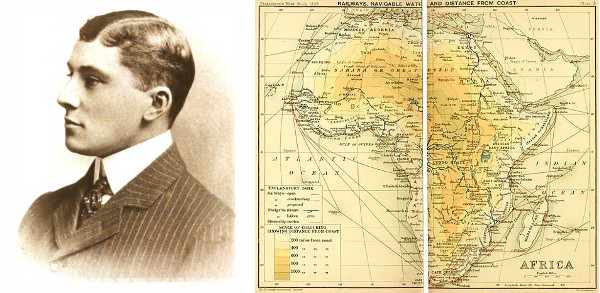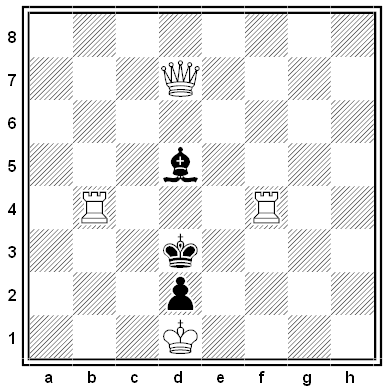By Colorado classics teacher Jeremy Boor:
MP3, lyrics, and chords are on his website.
By Colorado classics teacher Jeremy Boor:
MP3, lyrics, and chords are on his website.

The daily New York Times crossword puzzle fills a grid measuring 15×15. The smallest number of clues ever published in a Times puzzle is 52 (on Jan. 21, 2005), and the largest is 86 (on Dec. 23, 2008).
This set Bloomsburg University mathematician Kevin Ferland wondering: What are the theoretical limits? What are the shortest and longest clue lists that can inform a standard 15×15 crossword grid, using the standard structure rules (connectivity, symmetry, and 3-letter words minimum)?
The shortest is straightforward: A blank grid with no black squares will be filled with 30 15-letter words, 15 across and 15 down.
The longest is harder to determine, but after working out a nine-page proof Ferland found that the answer is 96: The largest number of clues that a Times-style crossword will admit is 96, using a grid such as the one above.
In honor of this result, he composed a puzzle using this grid — it appears in the June-July 2014 issue of the American Mathematical Monthly.
(Kevin K. Ferland, “Record Crossword Puzzles,” American Mathematical Monthly 121:6 [June-July 2014], 534-536.)
“The test of a first-rate intelligence is the ability to hold two opposed ideas in the mind at the same time, and still retain the ability to function.” — F. Scott Fitzgerald
“It is the mark of an educated mind to be able to entertain a thought without accepting it.” — Aristotle
“Education enables you to express assent or dissent in graduated terms.” — William Cory
“Education is the ability to listen to almost anything without losing your temper or your self-confidence.” — Robert Frost
“To change an opinion without a mental process is the mark of the uneducated.” — Geoffrey Madan
“To have doubted one’s own first principles is the mark of a civilized man.” — Oliver Wendell Holmes

When Ewart Grogan was denied permission to marry his sweetheart, he set out to walk the length of Africa to prove himself worthy of her. In this week’s episode of the Futility Closet podcast we’ll find out whether Ewart’s romantic quest succeeded.
We’ll also get an update on the criminal history of Donald Duck’s hometown, and try to figure out how a groom ends up drowning on his wedding night.

By W.A. Shinkman. This is a self-mate in two moves: White makes a move, Black is allowed to make any legal reply, then White plays a second move that forces Black to checkmate him.
A flock of starlings masses near sunset over Gretna Green in Scotland, preparatory to roosting after a day’s foraging. The flock’s shape has a mesmerisingly fluid quality, flowing, stretching, rippling, and merging with itself. Similarly massive flocks form over Rome and over the marshlands of western Denmark, where more than a million migrating starlings form an enormous display known as the “black sun.”
What rules produce this behavior? In the 1970s scientists thought that the birds might be following an electrostatic field produced by the leader. Earler, in the 1930s, one paper even suggested that they use thought transference.
But in 1986 computer graphics expert Craig Reynolds found that he could create a lifelike virtual flock (below) using a surprisingly simple set of rules: direct each bird to avoid crowding nearby flockmates, steer toward the average heading of nearby flockmates, and move toward the center of mass of nearby flockmates.
Studies with real birds seem to bear this out: Under rules like these a flock can react sensitively to a change in direction by any of its members, permitting the whole group to respond efficiently as one organism. “News of a predator’s approach can be communicated rapidly through the flock by whichever of the hundreds of birds on the outside notice it first,” writes Gavin Pretor-Pinney in The Wavewatcher’s Companion. “When under attack by a peregrine falcon, for instance, starling flocks will contract into a ball and then peel away in a ribbon to distract and confuse the predator.”
slow, But if it breaks it comes down up goes elevator The so.
— Yale Record, 1900-1919
New Year’s Day normally falls one week after Christmas: If Christmas falls on a Thursday, then New Year’s Day will fall on a Thursday as well. What is the most recent year in which Christmas and New Year’s Day fell on different days of the week?
Utica College mathematician Hossein Behforooz devised this “permutation-free” magic square in 2007:

Each row, column, and long diagonal totals 2775, and this remains true if the digits within all 25 cells are permuted in the same way — for example, if we exchange the first two digits of each number, changing 231 to 321, etc., the square retains its magic sum of 2775. Further:
231 + 659 + 973 + 344 + 568 = 2775
979 + 234 + 653 + 341 + 568 = 2775
231 + 343 + 568 + 654 + 979 = 2775
564 + 979 + 233 + 348 + 651 = 2775
231 + 654 + 563 + 978 + 349 = 2775
231 + 348 + 654 + 979 + 563 = 2775
And these combinations of cells maintain their magic totals when their contents are permuted in the same way.
(Hossein Behforooz, “Mirror Magic Squares From Latin Squares,” Mathematical Gazette, July 2007.)
Morse code palindromes, contributed by reader Dave Lawrence:
ANNEXING ·- -· -· · -··- ·· -· --·
BEEFIEST -··· · · ··-· ·· · ··· -
DEFOREST -·· · ··-· --- ·-· · ··· -
ESTHETES · ··· - ···· · - · ···
FINAGLED ··-· ·· -· ·- --· ·-·· · -··
HEARTIES ···· · ·- ·-· - ·· · ···
HECTARES ···· · -·-· - ·- ·-· · ···
INDEBTED ·· -· -·· · -··· - · -··
INTERNAL ·· -· - · ·-· -· ·- ·-··
INTUITED ·· -· - ··- ·· - · -··
RECENTER ·-· · -·-· · -· - · ·-·
SATIATES ··· ·- - ·· ·- - · ···
SEVENTHS ··· · ···- · -· - ···· ···
SHEEPISH ··· ···· · · ·--· ·· ··· ····
SOPRANOS ··· --- ·--· ·-· ·- -· --- ···
SUBHEADS ··· ··- -··· ···· · ·- -·· ···
WAVERING ·-- ·- ···- · ·-· ·· -· --·
WRECKING ·-- ·-· · -.-· -.- ·· -· --·
ANTICKING ·- -· - ·· -·-· -·- ·· -· --·
FOOTSTOOL ··-· --- --- - ··· - --- --- ·-··
FRESHENED ··-· ·-· · ··· ···· · -· · -··
INCIDENCE ·· -· -·-· ·· -·· · -· -·-· ·
SATURATES ··· ·- - ··- ·-· ·- - · ···
SIDELINES ··· ·· -·· · ·-·· ·· -· · ···
INITIALLED ·· -· ·· - ·· ·- ·-·· ·-·· · -··
INTERSTICE ·· -· - · ·-· ··· - ·· -·-· ·
RESEARCHER ·-· · ··· · ·- ·-· -·-· ···· · ·-·
WINTERTIME ·-- ·· -· - · ·-· - ·· -- ·
ANTIQUATING ·- -· - ·· --·- ··- ·- - ·· -· --·
INTERPRETED ·· -· - · ·-· ·--· ·-· · - · -··
PROTECTORATE ·--· ·-· --- - · -·-· - --- ·-· ·- - ·
INTRANSIGENCE ·· -· - ·-· ·- -· ··· ·· --· · -· -·-· ·
He notes that, perhaps fittingly, the word with the longest run of dots is OBSESSIVE, with 18: --- -··· ··· · ··· ··· ·· ···- ·